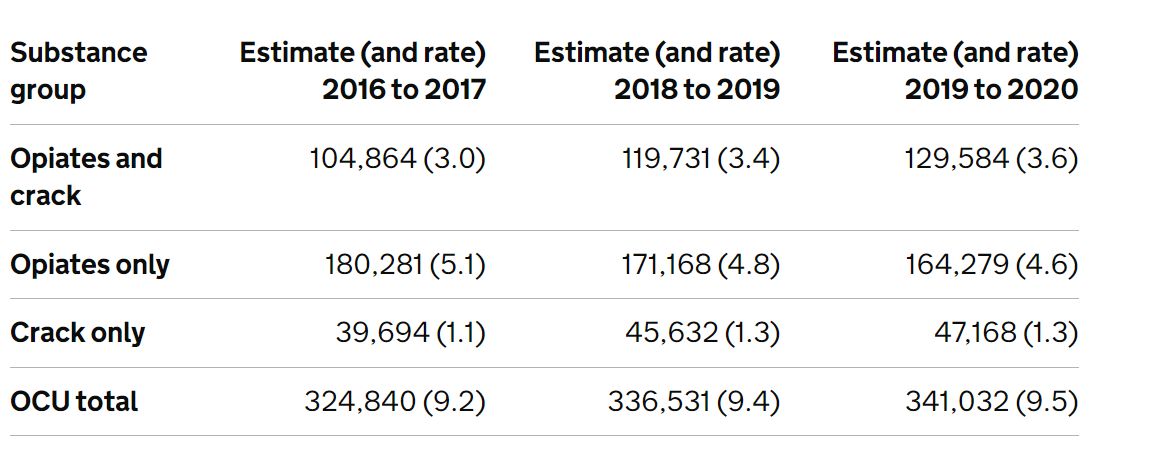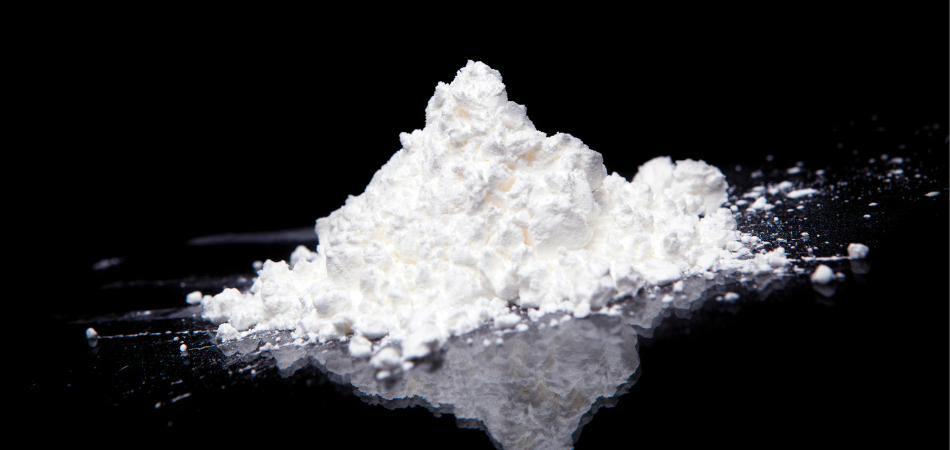
Written by:

Medically Reviewed by:
Last Updated:
February 14th, 2025
Crack cocaine addiction
What is crack cocaine?
Crack cocaine is a powerful, highly addictive form of cocaine, made by mixing powdered cocaine with water and baking soda or ammonia, then heating the mixture to form solid ‘rocks’.
These rocks are then smoked, producing an intense and immediate high that is much more potent than snorting powdered cocaine. The process of smoking allows the drug to enter the bloodstream quickly, leading to a rapid but short-lived euphoria. This short-lived action can spur the user to consume more in a short amount of time, fuelling crack cocaine addiction and dependency.
In the UK, crack cocaine is classified as a Class A drug, meaning it’s illegal to possess, produce or supply. The penalties for possession can include up to seven years in prison, while supplying or producing it can lead to a life sentence.
Is crack cocaine a problem in the UK?

Research published in October 2023 revealed a worrying trend: between 2016 and 2020, the number of people using crack cocaine in the UK increased by 19%.
This growth highlights that crack cocaine is not just a distant issue; it’s very much a reality within our borders, affecting more people each year. Such figures are a worrying reminder of the growing need to address the issue head-on, both in terms of education and treatment options, as more individuals fall into the grip of this dangerous drug.
What are the signs of crack cocaine addiction?
Knowing the signs of crack cocaine addiction is crucial, whether you’re trying to identify it in yourself or a loved one. Addiction often has a way of sneaking up on a person and it can become noticeable only when it’s already well-established. Recognising the early indicators of crack cocaine addiction can make a significant difference in addressing the problem before it spirals further.
Physical signs
- Weight loss: A rapid decrease in weight is common due to reduced appetite.
- Dilated pupils: Consistent dilation is a result of crack cocaine’s stimulant effects.
- Twitching or muscle tremors: Crack can cause involuntary movements and a jittery demeanour.
- Burn marks or sores: These may appear on the hands or lips due to the way crack is smoked.
- Chronic cough or respiratory issues: Smoking crack can lead to frequent coughing and lung problems.
Psychological signs
- Intense cravings: A persistent and overpowering desire to use crack, often disrupting daily life.
- Paranoia: Users can experience extreme anxiety and suspicion, sometimes developing delusional thoughts.
- Euphoria followed by depression: The initial high is followed by a significant emotional crash, contributing to a cycle of use.
- Irritability and mood swings: Emotional regulation becomes difficult, leading to unpredictable outbursts.
- Restlessness or insomnia: Difficulty relaxing or sleeping is common due to crack’s stimulating nature.
Behavioural signs
- Neglecting responsibilities: Users often fail to meet obligations at work, home or school due to preoccupation with obtaining and using crack.
- Isolation or secretive behaviour: A sudden withdrawal from social activities or a tendency to hide drug use from others.
- Increased financial problems: Crack addiction is expensive and users may spend excessive amounts of money or even steal to support their habit.
Risky behaviours: Engaging in dangerous or illegal activities, such as unprotected sex or crime, to obtain the drug.
Is there a link between gender and crack cocaine addiction?
This topic has been highly researched over the years, with many studies exploring the connection between gender and crack cocaine addiction.
In one study, researchers found that women tend to have an earlier onset of drug and crack use compared to men, along with a faster progression from experimenting with drugs to becoming addicted. This phenomenon, known as the telescoping effect, suggests that women develop addictions more quickly than men, not only with crack cocaine but also with other substances like alcohol, opioids and cannabis.
Also, while women might start using drugs later in life compared to men in some cases, they are more prone to rapid transitions from initial drug use to heavier drug use.
Interestingly, women also tend to seek treatment earlier and often present with more severe substance use issues when they do. These findings underline the distinct differences in addiction patterns between men and women, particularly with crack cocaine and highlight how gender can influence both the trajectory of substance use and the need for treatment.
Am I addicted to crack cocaine?
Crack cocaine is a highly addictive substance, and whether you’re just starting to notice changes in your behaviour or have been using crack for some time, it’s always important to pause and evaluate how it’s affecting your life. Addiction can develop more quickly than you realise, so taking a moment to ask yourself some tough questions can offer clarity.
Here are five questions to consider:
- Do you often feel an intense craving for crack cocaine that drives you to seek it out, even when you know the consequences?
- Have you ever used crack cocaine in situations where it put your safety or the safety of others at risk?
- Do you find yourself neglecting responsibilities at work, school or home because of crack cocaine use?
- Has your financial situation suffered due to spending excessive amounts of money on crack cocaine?
- Have you tried to quit but experienced withdrawal symptoms such as fatigue, depression or agitation that pushed you to use again?
If any of these questions resonate with your experience, it might be a sign that crack cocaine is impacting your life more than you’d like to admit.
Where can I get help for crack cocaine?
If you’re struggling with crack cocaine addiction, Liberty House Rehab Centre offers a safe and supportive environment to begin your recovery.
The process starts with detox, where your body is given time to clear the drug while our medical team ensures your safety and comfort during withdrawal.
This is followed by comprehensive therapies, including Cognitive Behavioural Therapy (CBT) and Dialectical Behavioural Therapy (DBT), which help address the root causes of addiction and teach healthier coping mechanisms.
Liberty House also believes in a holistic approach, offering activities like yoga and art therapy to heal both mind and body, encouraging a sense of balance and self-expression. After completing your rehab programme, our aftercare services ensure continued support, helping you stay on the path to recovery with ongoing guidance and resources.
If you’d like to learn more about our services and how they can help you or a loved one overcome crack cocaine addiction, contact Liberty House today for further guidance. We’re ready to support you.
Frequently asked questions
(Click here to see works cited)
- Vidyasankar G, Souza C, Lai C, Mulpuru S. A severe complication of crack cocaine use. Can Respir J. 2015 Mar-Apr;22(2):77-9. doi: 10.1155/2015/263969. PMID: 25848717; PMCID: PMC4390014.
- “Estimates of Opiate and Crack Use in England: Main Points and Methods.” GOV.UK, www.gov.uk/government/publications/opiate-and-crack-cocaine-use-prevalence-estimates/estimates-of-opiate-and-crack-use-in-england-main-points-and-methods. Accessed 3 Oct. 2024.
- Rebelatto FP, Ornell F, Roglio VS, Sanvicente-Vieira B, Grassi-Oliveira R, Pechansky F, Kessler FHP, Schuch JB, von Diemen L. Gender differences in progression to crack-cocaine use and the role of sexual and physical violence. Braz J Psychiatry. 2022 Jul 28;44(5):478-485. doi: 10.47626/1516-4446-2021-2248. PMID: 36409555; PMCID: PMC9561837.







